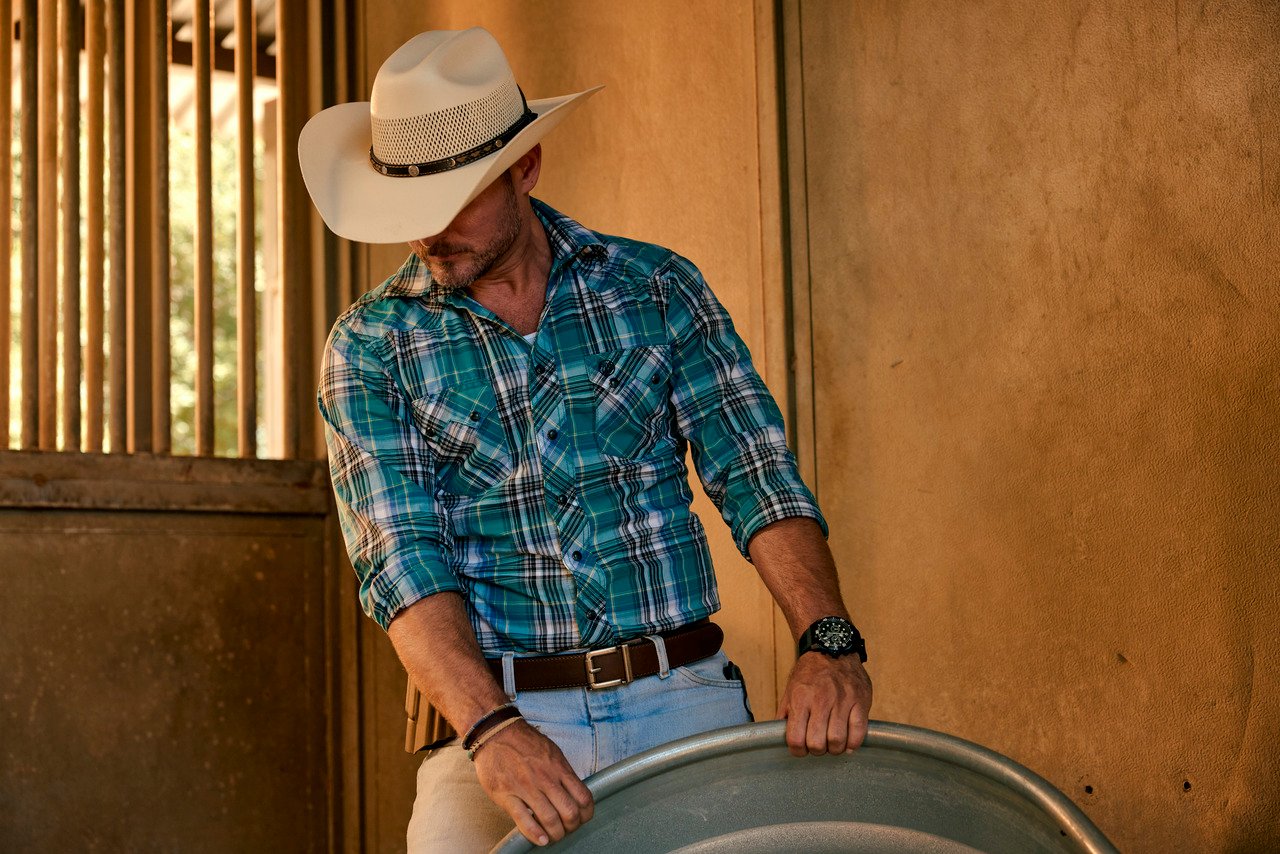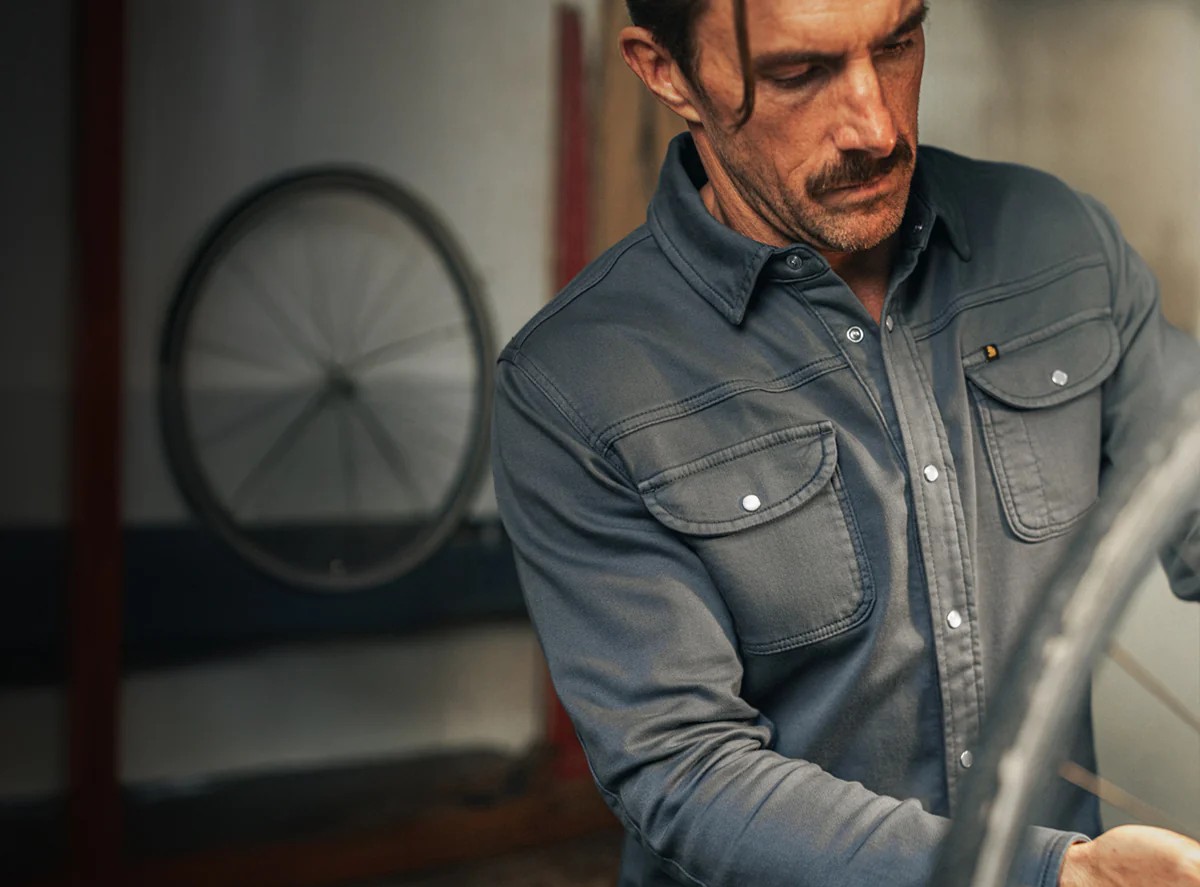The Salomon Sneakers Taking Over Streets, Cafés and Fashion Week
Feb 5, 2026WTF Is Collagen Banking? The Viral Skincare Solution Making Men ‘Ageless’
- May 22, 2024
- 0 Comments
552

Collagen banking is a term you might have heard buzzing around the grooming and skincare community. But what exactly does it mean, and why should you care?
As male skincare inches ever closer to the mainstream and biohacking bigwigs like Bryan Johnson make the quest for agelessness ever more coveted, knowing your way around a skin care regimen is only going to become more important.
This guide — written with the guiding hand of Anna Yastrebov from the revered Epios Cosmetic Clinic in Sydney — will break down the essentials of collagen banking, collagen repair, and how these concepts can help you maintain youthful, healthy skin.
Understanding Collagen Banking And Repair
A collagen bank is the amount of collagen you have at any one point in time. There are two major concepts here: Collagen Banking and Collagen Repair.
The concept of collagen banking is applicable to those who have not yet destroyed their collagen, and collagen repair is increasing the amount of collagen in the skin plus replenishing what has been lost. Hence, collagen repair may require multiple treatments before you can begin to bank your collagen.
A good analogy for this is as follows: You can only earn interest on money over $100 in your bank account — we can call the bank branch the Collagen Bank. If you start at 50 years of age, your bank account may only have $50 if you have been exposed to sun, stress and smoking.
In order to begin saving, you need to first repair or ‘earn back’ your lost money. Once you hit $100, you can begin earning interest — this is collagen banking.
When Does Collagen Decline?
Starting from around age 20-21, our bodies no longer renew collagen at the same rate. Unless you’re exposed to major stress, excessive sun, or poor nutrition, your collagen levels remain relatively stable until around age 41.
From this age onward, you actively begin losing at least 1% of your collagen each year, with the rate rapidly increasing for smokers.
Protocols For Collagen Banking and Repair
The treatments for collagen banking are similar to those for collagen repair, with the main difference being the frequency of treatments. These protocols are tailored to individual needs based on factors like smoking, diet, sun exposure, stress, medications, and illnesses.
Here are some common treatments:
- Skin Boosters: These are introduced into the collagen-producing layer of the skin to stimulate collagen production.
- Radiofrequency Devices: Devices like Morpheus8 deliver renewal stimuli at specific depths in the skin, which can be customized to your needs.
- Biostimulators: These can be endogenous (originating from within the body) or exogenous (originating from outside the body) and help stimulate collagen production.
- Exosomes: These are messengers that deliver renewal signals to targeted cells, promoting collagen production.
- Skincare and Protection: Using SPF 50+ is crucial to protect your skin and maintain collagen levels. A simple, effective skincare routine is recommended, avoiding overly complex regimens.
- PDO Mono Threads: These are collagen-inducing threads that stimulate collagen in the surrounding tissues.
Why Should You Care About Collagen Banking?
Collagen is vital for maintaining skin elasticity, firmness, and overall health. As we age, our skin’s ability to produce collagen decreases, leading to wrinkles, sagging, and heaps of other signs of aging. By understanding and utilising collagen banking, you can effectively maintain and even enhance your skin’s youthful appearance.
By following tailor-made protocols and advanced treatment plans like those available at Epios Cosmetic Clinics, you can take proactive steps towards better skin health with the help of bonafide experts.
Publisher: Source link







